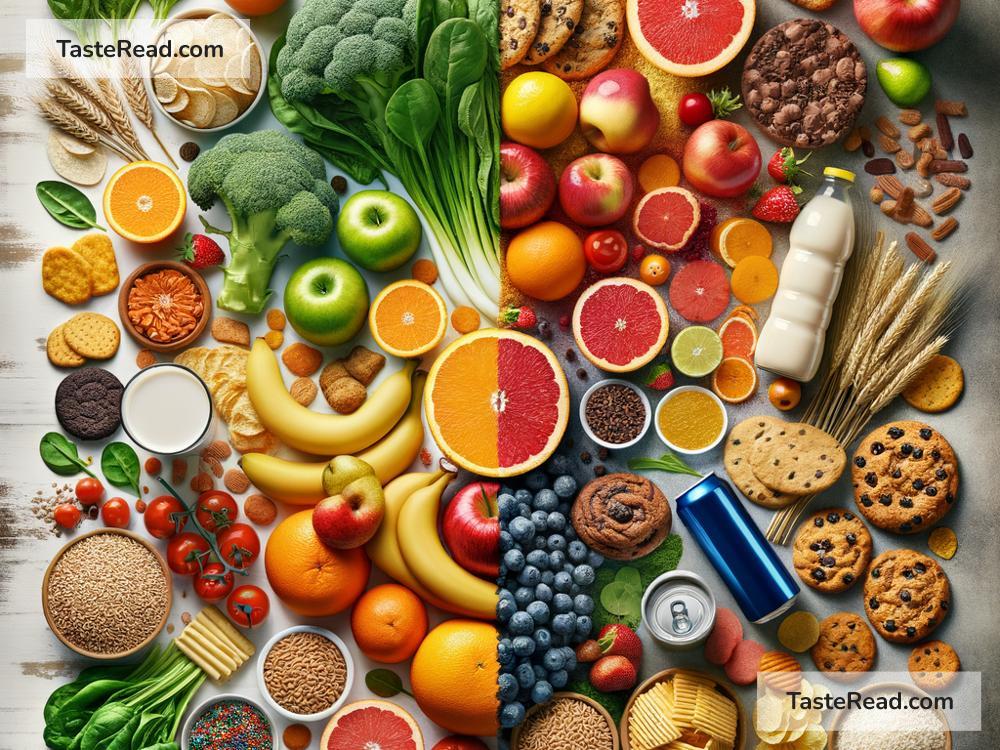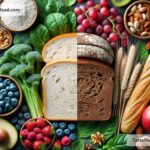The Impact of Processed Foods on Nutrition
In today’s fast-paced world, processed foods have become a big part of our diets. From frozen meals to snacks like chips and cookies, these foods are everywhere. While they are convenient and tasty, they can also affect our health. In this blog, we’ll talk about what processed foods are, how they impact our nutrition, and what we can do to make healthier choices.
What Are Processed Foods?
Processed foods are any foods that have been altered from their natural state. This can include cooking, freezing, canning, or adding ingredients like sugar, salt, or preservatives. Some processed foods are only minimally changed—for example, frozen vegetables or canned beans. On the other hand, ultra-processed foods, like sugary drinks, instant noodles, or packaged snacks, go through multiple stages of processing and often contain additives, artificial flavors, and colors.
Not all processed foods are bad, but many ultra-processed foods can negatively affect our health over time.
How Do Processed Foods Impact Nutrition?
One of the main concerns with processed foods is that they often lack essential nutrients. Here’s a closer look at how processed foods can impact nutrition:
1. Loss of Nutrients
Processing methods like heating, refining, and removing certain parts of food can strip away important nutrients. For example, when grains are refined to make white bread or white rice, they lose fiber, vitamins, and minerals. This is why whole grains are healthier—they keep those nutrients intact.
2. Added Sugar and Salt
Many processed foods contain high amounts of added sugar and salt, which can harm your health. Consuming too much sugar can lead to weight gain, diabetes, and energy crashes. Similarly, high salt intake can raise your blood pressure and strain your heart. Foods like sodas, cakes, instant soups, and packaged sauces often have more sugar and salt than we realize.
3. Unhealthy Fats
Some processed foods, like fried snacks, bakery items, and certain frozen meals, contain unhealthy fats called trans fats. These fats can increase bad cholesterol levels and raise your risk of heart disease. Even foods labeled “low-fat” may still be unhealthy if they’re loaded with sugar or additives.
4. Artificial Additives and Preservatives
To make foods last longer or taste better, manufacturers add chemicals like preservatives, flavor enhancers, and artificial colors. While these additives are usually approved for consumption, eating them regularly may not be ideal for your health. Some people are sensitive to these substances and may experience headaches, digestive upset, or allergic reactions.
5. Empty Calories
Processed foods like candy, chips, and soft drinks often have “empty calories.” This means they provide energy but little to no nutrients like protein, fiber, vitamins, or minerals. Over time, relying on these foods can lead to nutrient deficiencies and health problems.
How Do Processed Foods Affect Our Bodies?
Poor nutrition caused by eating too many processed foods can have long-term effects on our health. Here are some common issues:
- Weight Gain: Processed foods are often high in calories but low in nutrients. Since they don’t fill you up, you may overeat and gain weight without getting the vitamins or fiber your body needs.
- Chronic Diseases: An unhealthy diet with too much processed food can increase the risk of heart disease, diabetes, and even certain types of cancer. Sweetened beverages, salty snacks, and processed meats are especially linked to these diseases.
- Low Energy Levels: Since processed foods lack essential nutrients, they may leave you feeling tired and sluggish. Natural foods, like fruits and vegetables, give your body the energy it needs to function well.
Can All Processed Foods Be Avoided?
It’s almost impossible to avoid processed foods completely, and not all processed foods are bad. Minimally processed foods like frozen fruits, plain yogurt, or whole-grain bread can still be part of a healthy diet. What matters most is choosing foods wisely and focusing on balance.
Tips for Reducing Processed Foods
Here are some simple tips to limit processed foods and improve your nutrition:
-
Cook at Home: Preparing meals yourself lets you control what goes into your food. Try simple recipes using fresh ingredients like vegetables, lean meats, and whole grains.
-
Read Labels: When buying packaged foods, look at the nutrition label. Choose options with less added sugar, salt, and unhealthy fats. Avoid items with long ingredient lists full of unfamiliar chemicals.
-
Snack Smart: Replace chips, candy, and cookies with healthier snacks like nuts, fruits, or veggies with hummus.
-
Drink Water: Sugary drinks add a lot of calories to your diet. Switch to water, herbal tea, or unsweetened beverages instead.
-
Choose Whole Foods: Eat more foods in their natural form, like fresh fruits, vegetables, whole grains, and protein sources like eggs or fish.
-
Plan Your Meals: Planning ahead can help you avoid reaching for processed convenience foods. You can pack leftovers or prep healthy snacks for busy days.
Conclusion
Processed foods may be convenient, but they often come at a cost to our nutrition and health. By understanding their impact and making smarter food choices, we can take better care of our bodies. Start by eating more whole foods and paying attention to ingredients. It’s not about perfection; it’s about balance. Small steps can lead to big changes in how you feel and how your body functions. So the next time you grocery shop or plan a meal, think about how you can choose foods that truly nourish you.


